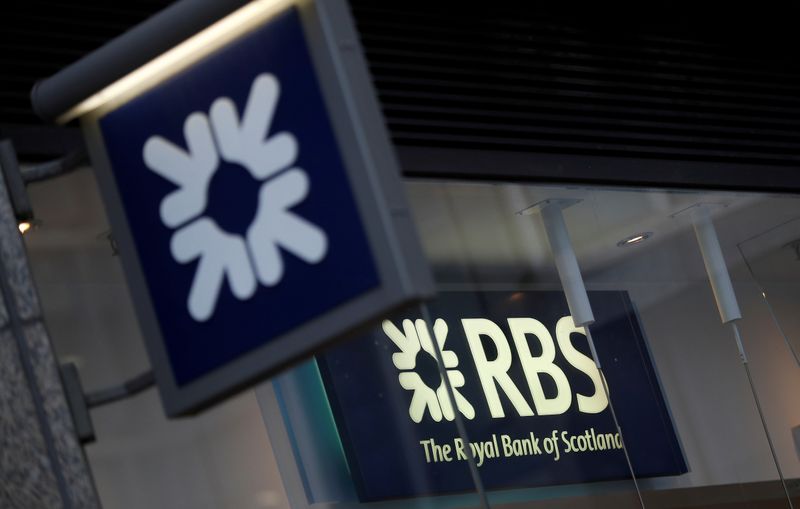This post was originally published on this site
https://i-invdn-com.akamaized.net/trkd-images/LYNXMPEG4I0XB_L.jpg
LONDON (Reuters) – Best known as Britain’s biggest financial crisis failure, some investors and analysts view majority state-owned Royal Bank of Scotland (NYSE:RBS) as the lender likely to emerge strongest from the coronavirus downturn.
RBS (L:RBS) had built the largest capital surplus of any major British bank before the pandemic struck, some 14 billion pounds ($17 billion) above the regulatory minimum, and had hoped to use much of this to buy back the government’s 62% stake.
Now investors are betting this capital cushion, which will help it absorb loan losses resulting from the economic crunch, will help RBS gain greater market share and potentially restore a dividend ahead of rivals.
“RBS can use this capital to increase lending without having to issue new shares,” James Clunie, portfolio manager at top-15 investor Jupiter Asset Management (L:JUP), said, pointing to the bank’s 16.6% core capital buffer against the required 9%.
“I have a feeling that’s what they’re going do, and it pleases everyone: customers, the taxpayer, the government.”
RBS was quicker than other banks to lend billions of pounds under the British government’s coronavirus relief schemes, although executives say it was not under pressure to do so.
The RBS loan book grew by 7%, or 24.4 billion pounds, quarter-on-quarter, after 7% growth over 2019 and Chief Financial Officer Katie Murray has told analysts it should exceed its target of 3% lending growth this year.
By contrast, Lloyds Banking Group’s (L:LLOY) first-quarter lending rose 1% in the first quarter, after the loan book of Britain’s largest domestic bank had shrunk by 1% in 2019.
Although RBS Chief Executive Alison Rose has said it is only lending to existing customers via the government’s relief schemes, analysts say any expansion risks greater losses as many of the loans are 80% not 100% state guaranteed.
Analysts at brokerages such as KBW are now forecasting losses ahead for RBS, which made 800 million pounds of provisions in the first quarter against expected loan losses.
KBW, which has a ‘sell’ rating on RBS, forecasts it will have to make more than 4 billion pounds of coronavirus-related loan provisions in 2020 and will suffer a pre-tax loss of around 800 million pounds this year.
And while a year-end dividend is unlikely given the economic downturn and political pressure on banks and other companies not to make payouts to shareholders, John Teahan, portfolio manager at RWC Equity Income, thinks RBS will reward their patience.
“It may take some time to get to their target, back to last year’s earnings level, but when they do, then the 2019 distribution equates to a 20% return per annum to investors based on today’s share price,” Teahan said.
‘MORE RBS-LIKE’
While majority state ownership, the result of a 45 billion pound government bailout during the 2007-2008 financial crisis, may have made it more solid facing the coronavirus pandemic and its aftermath, RBS may also now take longer to emerge from it.
Chairman Howard Davies said this month that RBS still wants to buy back state-owned stock in the long term, but this could be some way off after a fall in its share price to just above 100 pence, well below the last government sale at 271 pence.
RBS secured shareholder approval for directed buybacks of the state’s shares last year, which would complement any purchases of its own stock in the open market, should the government decide to sell down in this way.
But the British government’s target of fully privatising RBS by 2025, which had already been pushed back by a year in the Budget in March, looks wildly optimistic, some analysts say.
“2030 may well be doable, but I’m sure the government thought 2020 might be doable when it bought in at 500 pence-a-share,” said Ian Gordon, banking analyst at Investec, who rates RBS stock as a ‘buy’.
But with many firms seeking taxpayer backing to see them through the coronavirus crisis, some investors say the impetus to shed state ownership is far less pressing.
“Other companies have become more RBS-like,” Clunie said.

